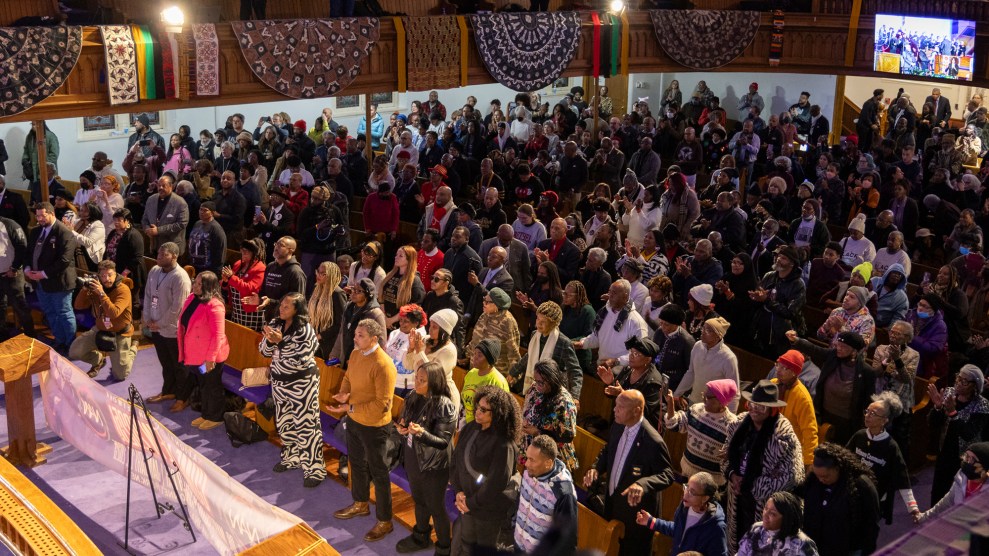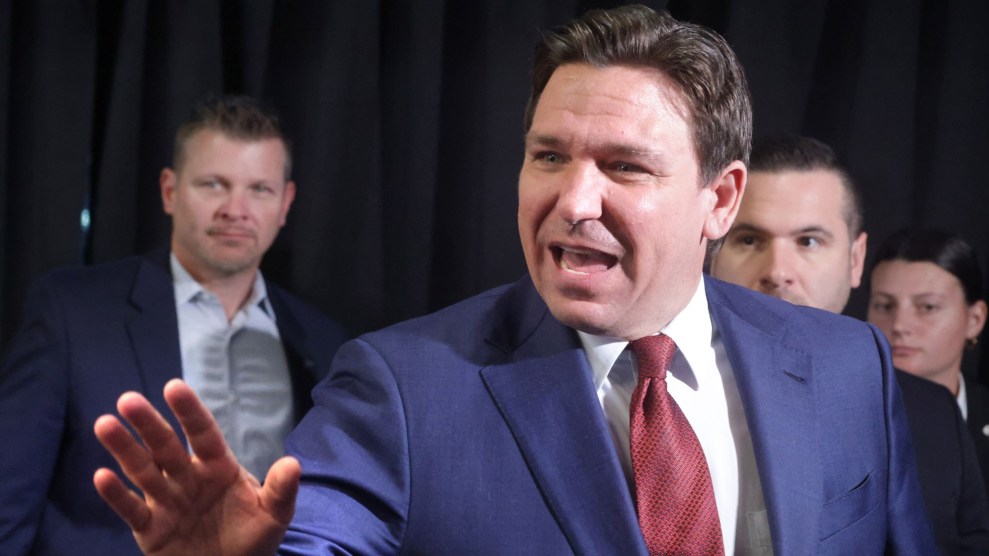I know what I’ll be doing on Christmas Eve. My wife, my 4-year-old daughter, my dad, my brother, and I will snowshoe out into the woods in late afternoon, ready to choose a hemlock or a balsam fir and saw it down — I’ve had my eye on three or four likely candidates all year. We’ll bring it home, shake off the snow, decorate it, and then head for church, where the Sunday school class I help teach will gamely perform this year’s pageant. (Last year, along with the usual shepherds and wise people, it featured a lost star talking on a cell phone.) And then it’s home to hang stockings, stoke the fire, and off to bed. As traditional as it gets, except that there’s no sprawling pile of presents under the tree.
Several years ago, a few of us in the northern New York and Vermont conference of the United Methodist Church started a campaign for what we called “Hundred Dollar Holidays.” The church leadership voted to urge parishioners not to spend more than $100 per family on presents, to rely instead on simple homemade gifts and on presents of services — a back rub, stacking a cord of firewood. That first year I made walking sticks for everyone. Last year I made spicy chicken sausage. My mother has embraced the idea by making calendars illustrated with snapshots she’s taken.
The $100 figure was a useful anchor against the constant seductions of the advertisers, a way to explain to children why they weren’t getting everything on their list. So far, our daughter, Sophie, does fine at Christmas. Her stocking is exciting to her; the tree is exciting; skating on the pond is exciting. It’s worth mentioning, however, that we don’t have a television, so she may not understand the degree of her impoverishment. This holiday idea may sound modest. It is modest. And yet at the same time it’s pretty radical. Christmas, it turns out, is a bulwark of the nation’s economy. Many businesses — bookstores, for instance, where I make my living — do one-third of their volume in the months just before December 25th. And so it hits a nerve to question whether it all makes sense, whether we should celebrate the birth of a man who said we should give all that we have to the poor by showering each other with motorized tie racks.
It’s radical for another reason, too. If you believe that our consumer addiction represents our deepest problem — the force that keeps us from reaching out to others, from building a fair society, the force that drives so much of our environmental degradation — then Christmas is the nadir. Sure, advertising works its powerful dark magic year-round. But on Christmas morning, with everyone piling downstairs to mounds of presents, consumption is made literally sacred. Here, under a tree with roots going far back into prehistory, here next to a crèche with a figure of the infant child of God, we press stuff on each other, stuff that becomes powerfully connected in our heads to love, to family, and even to salvation. The 12 days of Christmas — and in many homes the eight nights of Hanukkah — are a cram course in consumption, a kind of brainwashing.
When we began the $100 campaign, merchants, who wrote letters to the local papers, made it clear to us what a threatening idea it was. Newspaper columnists thought it was pretty extreme, too — one said church people should stick to religion and leave the economy alone. Another said that while our message had merit, it would do too much damage to business.
And he was right, or at least not wrong. If we all backed out of Christmas excess this year, we would sink many a gift shop; if we threw less lavish office parties, caterers would suffer — and florists and liquor wholesalers and on down the feeding chain. But we have to start somewhere, if we’re ever to climb down from the unsustainable heights we’ve reached, and Christmas might as well be it.
When we first began to spread this idea about celebrating Christmas in a new way, we were earnest and sober. Big-time Christmas was an environmental disgrace — all that wrapping paper, all those batteries. The money could be so much better spent: The price of one silk necktie could feed a village for a day; the cost of a big-screen television could vaccinate more than 60 kids. And struggling to create a proper Christmas drives poor families into debt. Where I live, which is a poor and cold place, January finds many people cutting back on heat to pay off their bills.
Those were all good reasons to scale back. But as we continued our campaign, we found we weren’t really interested in changing Christmas because we wanted fewer batteries. We wanted more joy. We felt cheated by the Christmases we were having — so rushed, so busy, so full of mercantile fantasy and catalog hype that we couldn’t relax and enjoy the season.
Our growing need to emphasize joy over guilt says a great deal about the chances for Christian radicalism, for religious radicalism in general. At its truest, religion represents the one force in our society that can postulate some goal other than accumulation. In an
I-dolatrous culture, religion can play a subversive role. Churches, mosques, and synagogues almost alone among our official institutions can say, It’s not the economy, stupid. It’s your life. It’s learning that there’s some other center to the universe.
Having that other center can change the way we see the world around us. It’s why devoted clergy and laypeople occasionally work small miracles in inner cities and prisons; it’s why alcoholics talk about a Higher Power. If we’re too big, then perhaps the solution lies in somehow making ourselves a little smaller.
You may be too late for this christmas. You may already have bought your pile of stuff, or perhaps it’s too late to broach the subject with relatives who will gather with you for the holidays, bearing (and therefore expecting) great stacks of loot. Our local Methodist ministers begin in September, preaching a skit sermon about the coming holiday. Many in our church community now participate. So do some of our neighbors and friends around the country.
None of us is under any illusions; we know that turning the focus of Christmas back to Christ is a long and patient effort, one that works against every force that consumer culture can muster. But to judge from our own holidays in recent years, it’s well worth the effort. I know what we’ll be doing Christmas morning: After we open our stockings and exchange our few homemade gifts, we’ll go out for a hike. Following the advice of St. Francis of Assisi, who said that even the birds deserve to celebrate this happy day, we’ll spread seed hither and yon — and for one morning the chickadees and the jays will have it easy. And then we’ll head back inside to the warm and fragrant kitchen and start basting the turkey, shaping the rolls, mashing the potatoes.
Some things are sacred.
Bill McKibben is the author of The End of Nature. His next book, Maybe One: An Environmental and Personal Argument for Single-Child Families, will be published by Random House in the spring.
















